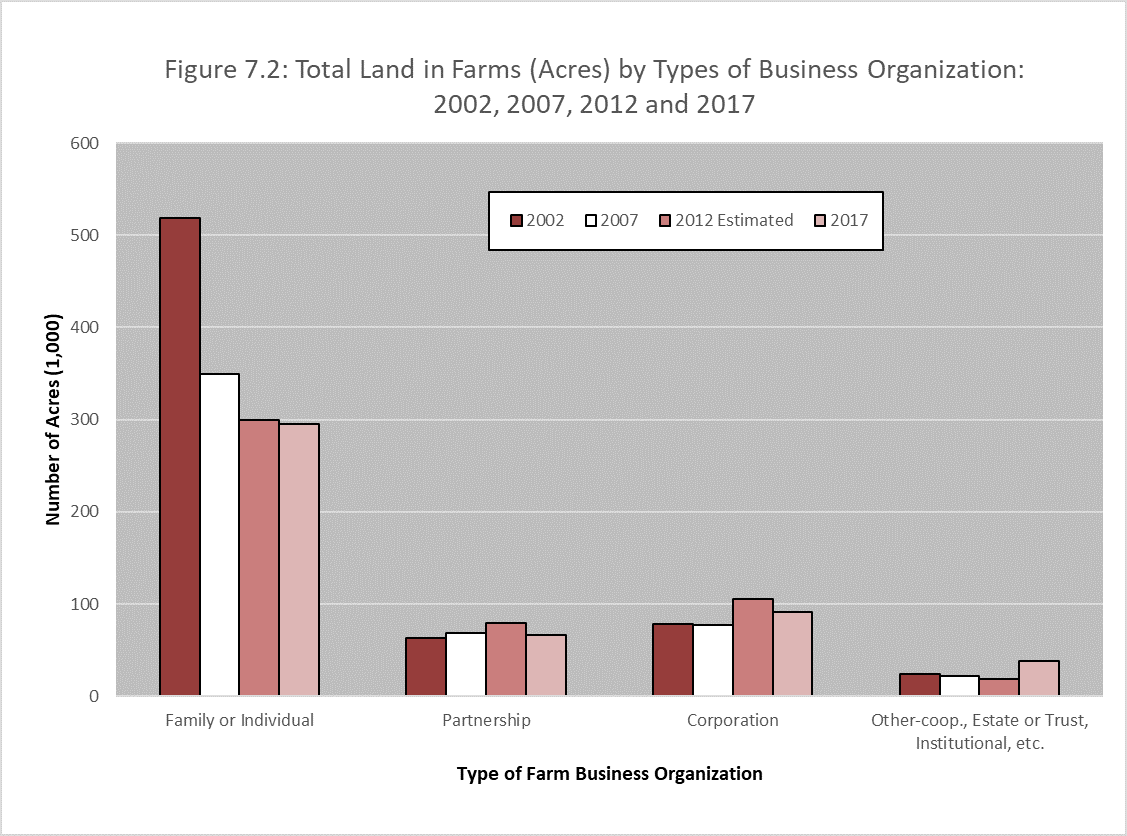Farm Business Types by Acres
Massachusetts Agricultural Census 2017
Which Farm Business Type Holds the Most Land?
The greatest numbers of Massachusetts farms have been family or individually owned over the past three decades. These farms have also held the largest amount of land in farms. Land in family farms, however, decreased 15.5 percent between 2007 and 2017, from 349,617 acres to 295,597 acres. Land in partnerships decreased 4.5 percent in that time, although this decrease reflects a gain of only about 3,000 acres. Land in corporations also increased by 18.7 percent between 2007 and 2017, but this large percent similarly reflects a small number of total acres, 14,382 acres.
In 2017, family farms operated about 60 percent of the farmland in Massachusetts. In 2007 (Figure 7.2), these farms operated nearly 350,000 acres of the total 520,000 acres in Massachusetts, 67.5 percent of all farmland in the state. In 2002, the proportion of land held by family and individually owned farms was even greater at nearly 519,000 acres (76 percent of the total 687,000 acres). Corporate farms, which represented about 9 percent of the farms in 2017, controlled over 91,000 acres or 18.6 percent of Massachusetts's farmland. Partnerships held 66,035 acres or 13.4 percent of the Commonwealth's farmland in 2017. Other types of business organizations held the remaining 38,755 acres of Massachusetts's farmland (7.9 percent). In 2012, the census protects the possibility that the land data will reveal information about individual farms, and data are therfore withheld for all but the corporate farms. Corporate farms in 2012 represented 106,000 acres (15.8 percent) of the approximately 524,000 acres Massachusetts farmland. Figure 7.2 displays only the amount of farmland held by farms that are incorporated. We use past information on average farm sizes and farm numbers by type of operation to estimate that in 2012, about 300,000 acres were owned by families or individuals, about 76,000 acres by partnerships and 41,000 acres by other types of farm operations.

